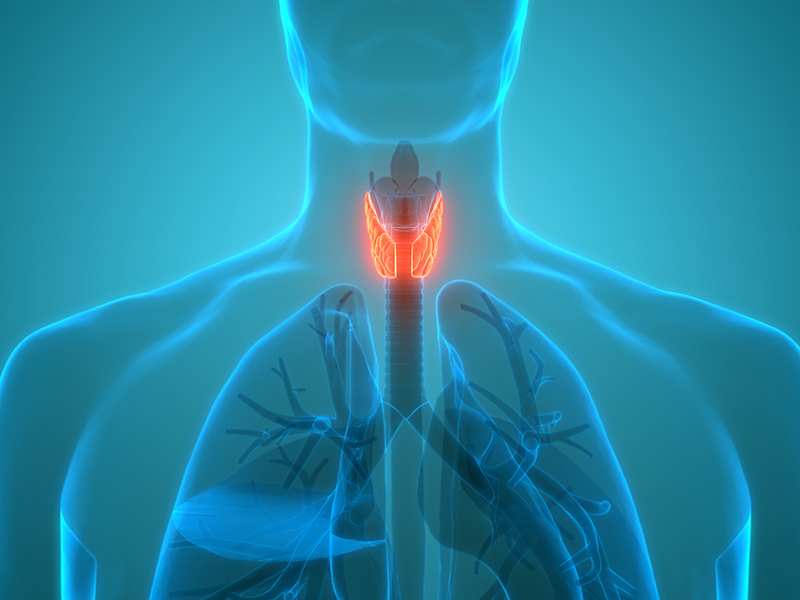January is Thyroid Awareness month. If you’re like me before I investigated this topic, you might have a vague idea of what your thyroid is or where it is located. Somewhere around your neck, right? And it has something to do with your hormones, I think.
To be more specific, your thyroid is a gland located at the front base of your neck close to your collar bone. It is classified as part of the endocrine system. Why is your thyroid important? It influences the functioning of your vital organs like your brain, heart, lungs, liver and kidneys by producing hormones that regulate your metabolism. When it doesn’t function correctly it can lead to diseases. If you notice any swelling or bumps where your thyroid is located ask your doctor for a blood test to check your TSH (thyroid-stimulating hormone) levels.
There are two common diseases related to thyroid dysfunction: hyperthyroidism is an overactive thyroid and hypothyroidism is an underactive thyroid. I recently interviewed Emily (named changed for privacy), who has been diagnosed with hypothyroidism.
When were you diagnosed with hypothyroidism?
I was 27 years old, which was 4 years ago.
What symptoms did you experience?
I was tired all the time. I would sit in a chair and just fall asleep. My husband noticed how easily I fell asleep all the time, but I thought I was tired since I had three children under the age of 3. I gained weight and again I thought it was related to having children and noticed sores on my scalp. I experienced two miscarriages but still didn’t realize it was related to my thyroid. Finally, after falling asleep all the time, the doctor tested my thyroid levels and diagnosed me with an underactive thyroid.
What is the treatment for the underactive thyroid?
At first, I was placed on the medication Armour Thyroid, which is a pill you take once a day. It is natural medication made from the glands of animals such as sheep or pigs. It worked well but it was expensive. So I then switched to Cytomel (generic name Liothyronine), which is chemically made and less expensive. It is also one pill that I take every day.
Did the treatment work? Do you have side effects?
Yes, I no longer experience any of the symptoms, but I will have to continue to take the mediation for the rest of my life. I don’t experience any side effects.
Do you have to follow up with the doctor?
Yes, twice a year I need to have my blood tested to make sure the medication is still regulating my thyroid.
Originally published on Signature Moms.


